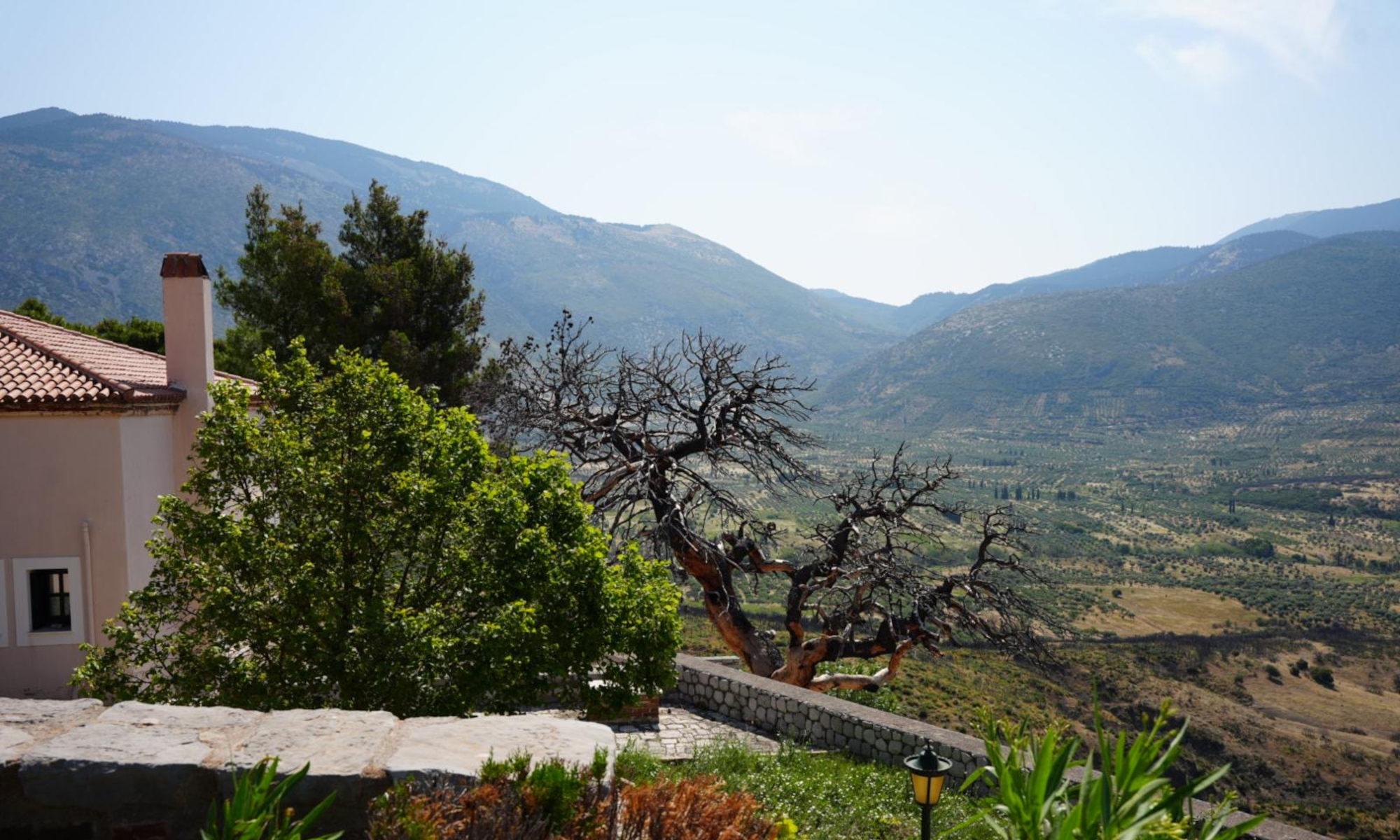by Maggie Stewart
Flying into Greece, I peered out my window, groggy from my melatonin and Dramamine cocktail, and attempted to orient myself using the vast hills that expanded into the cloudy skyline as my anchor. But it was not the topography that captured me; it was how manicured many of them appeared. The footprints of humanity came into clearer view as the plane began to approach the tarmac, surrounded by solar panels that absorbed Greece’s abundant sun and bounced it back into my eyes. After shuffling from room to room in the airport, I made it into the car and onto the highway. The hills I had seen from my window rolled down into flatter land surrounding the highway, but unlike New Jersey highways, this land felt far more cultivated, biodiverse, even purposeful, with every tree or bush placed neatly in an even line, as if standing for roll call.
While Greece is naturally ecologically abundant, which can help lower temperatures, provide shade, and improve planetary wellbeing, it comes with a downside, especially as the climate grows more volatile. An OECD environmental policy paper highlights these issues, particularly in Greece, which is prone to wildfires, due to its vast forests, which take up over 50 percent of the land, and hot climate, which wreaks havoc on the lives of people, animals, and plants in the surrounding areas. The report states, “Wildfires have had lasting negative impacts” on the people nearby, being linked to an increase in cardiovascular and respiratory-related deaths. However, when speaking with the locals in Athens, they do not seem to have a great sense of climate awareness or urgency.
I attempted to discuss the issue with a few locals, including a man working at a kiosk in Athens. As I approached the little outpost on the corner of a busy road, I felt the sweltering heat from the sun above and the concrete below my feet. I asked him about the heat in Athens and his experience working outside, linking the overall issue to climate change. Even in the intense heat, he, like others on the street, had cited a lack of knowledge as a reason for not engaging in further conversation with me. This sentiment was further corroborated by talks with reporters at Ekathimerni, who stated that climate change was not top of mind for the public, even while being a major issue they face. As an outsider, however, the state of the environment was alarming. I noticed that the greenery was surrounded by dry brush, and the sun illuminated areas that looked as though they were craving a cool glass of water. It felt reminiscent of visiting California in the 2010s during their drought; things were alive but fragile, like a matchbox waiting to be ignited.
Further into the drive, the vast highway quickly dissolved into the narrower streets of Athens. Trees turned into buildings and bushes into cars. Instead of flowers dotting the area, it was graffiti. When walking around Athens, the intense heat seared into my skin, and with little tree cover, it was difficult to find shade during explorations of the city. Even in the morning, the heat felt inescapable. After walking up hills of concrete, I felt like I was evaporating. Cracked lips, sun-baked skin, even the back of the throat felt dry. Even inside, I must use the AC and water only when needed. As cautioned by the sign in my apartment, these things are “a scarce commodity.”
Many things about Athens struck me, not necessarily as new, but simply more pronounced. While heat waves and resource scarcity occur in the US, they feel short-lived or avoidable with the right economic standing, but in a small place like Athens, no one is immune. You can’t simply use more water because you’re willing to pay extra; water will eventually run out. You can’t just blast the AC till the heat wave is over; it’s always sweltering in the summer, and AC units are not built to handle the strain. Athens and America share common threads to varying degrees; things such as heat, political divisions, and adapting infrastructure are all unavoidable markers of our rapidly changing world.
